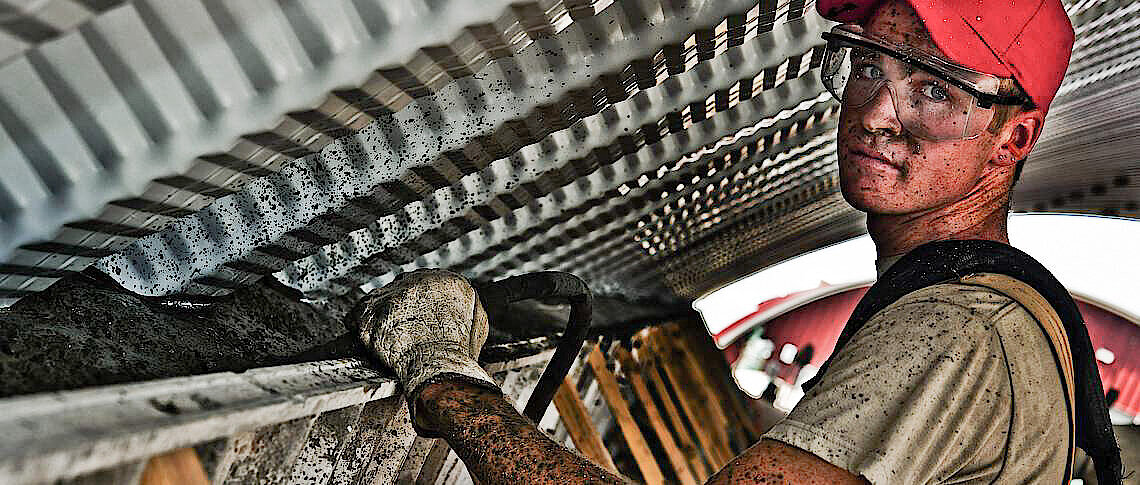Richard Trumka is president of the 12.5-million-member American Federation of Labor and Congress of Industrial Organizations (AFL-CIO). He recently announced his resignation from US president Donald Trump’s manufacturing council, in protest at the president’s reaction to an attack at a white nationalist rally in Charlottesville, Virginia, in which one person was killed. Hannes Alpen spoke to him about workers’ rights in the era of Trump, international trade deals and the threat of automation in the jobs market.
As head of America’s unions, what is your reaction to President Donald Trump’s claim to be the voice of American workers?
First we need to understand that the economy in the United States and in many other countries hasn’t been working for many workers. In fact, less than the top 10 percent are benefiting. After so much economic pain, along comes a candidate like Donald Trump who makes outrageous promises, provides hope sometimes when there is no hope financially, and is able to tap into that pain.
Our approach to this has been to call his promises like we see them. Every day we tell our members: this is what he promised, this is what he has done, this is how it affects you and your family and your economic security and your retirement.
But Americans knew what they were getting into. Trump told voters he would lower corporate income tax and scrap Obama’s healthcare plan during his election campaign.
Yes, but those promises haven’t played out in the way Trump said they would. When he said, “I’m going to do away with Obamacare,” he implied he would replace it with better care, covering more people, when in fact under this proposal 24 million Americans would lose healthcare. Those that kept healthcare would pay much higher premiums and actually have less coverage because insurance providers could exclude people that have pre-existing conditions.
It’s the same thing with tax. Trump promised to create jobs by lowering corporate taxes. Well, you create jobs by creating demand, by giving people more money to spend – because the US economy is 72 percent driven by consumer spending. If people don’t have money in their pocket, that tax break just goes to the corporate bottom line. Trump never said that to fund that tax break for the rich, ordinary people would pay more.
Trump said, “I’m going to create manufacturing jobs,” but he never told people he’d do that by eliminating all health and safety regulations, anti-pollution regulations, everything that protects workers. When Trump’s policies are exposed in full, we see it’s not what he told workers and not what they voted for.
What do you think of Trump’s America First policy?
Here’s the thing about that phrase “America First”. It means corporate America first. Trump hasn’t done anything for manufacturing that would actually help workers. He’s done nothing to raise wages. In fact, he stopped a planned regulation that would have given additional overtime to 4 million people.
Unions throughout the world have been critical of international trade deals. How do you see Trump’s rejection of the Trans-Pacific Partnership (TPP) and his plan to renegotiate the North American Free Trade Agreement (NAFTA)?
For 25 years now the American labour movement has been trying to change the type of trade deals we enter into, from neoliberal, corporate-driven trade deals to ones that actually benefit workers. We had already killed TPP. So Trump was like a coroner. The patient is dead, but the coroner signs the death certificate. He signed the death certificate on TPP. That was a good thing because it was a bad agreement.
On NAFTA he’s been all over the place. First he wants to pull out. Then he wants to renegotiate.
We believe in trade. We fight for a global labour movement because we know that unless wages rise everywhere in the world, they won’t rise very much anywhere. So, trade agreements have to help workers on both sides of the border. That’s why we want to do away with special courts for foreign investors; strengthen labour and environmental standards in the agreement and make them enforceable.
Previous trade agreements with the US have depended on the government to enforce the law. If an anti-worker government decides not to enforce it, you have no remedy. As a result, other countries have taken advantage of our industries through currency manipulation and other forms of – I’d say – cheating. So, the vast majority of Americans believe that the trade rules, the neoliberal, corporate-driven trade agreements have not worked for them or their country.
How much has automation affected jobs in the US?
Clothing factories in the United States used to be among the most automated in the world. They closed because you could get people working in Vietnam for 50 cents a day.
So you can’t analyse either issue in isolation. The rules of the economy have been written for workers to lose and corporations to win. It’s that imbalance that has created inequality.
One day, many jobs will be done by machines. And there might not be enough work to go round. What solutions to this problem are being discussed in the US?
People talk about retraining. They talk about a guaranteed minimum income.
The gig economy has prevented people from facing the ultimate cliff edge so far. But I do know that when an economy stops working for the majority of its people, the economy will have to change in one way or another.
I think progress is inevitable. When we went from buggy whips to cars a lot of people lost their jobs, but others found new kinds of jobs.
Unfortunately in the US, because the political parties are so polarised, solutions aren’t being sought right now.
This is the first generation in America where children cannot look forward to a rising standard of living. Yet America is the richest nation on the face of the earth at its most rich point in history. If we could provide a decent living for people when we weren’t this rich, why can’t we do it when we are this rich? It’s the lack of political will. Unfortunately the very wealthy call the shots because of the rules they’ve set up that allow them to dominate political elections.
Trump’s election victory was so shocking to Europeans, it was pretty much portrayed as Armageddon. Isn’t this kind of reaction maybe a warning to corporate America that the country is in a bad state?
Corporate America doesn’t look at it that way. With corporate America every election is “heads I win, tails I win” because they pump so much money into both sides that no matter who wins, they win. That’s how they’ve been able to write the rules over the last 40 or 50 years.
Trump’s election should have been a tell-tale sign. He made all these outrageous statements? Some were racist, some sexist, some xenophobic. People knew that and they didn’t care. They wanted the rules of the economy to change to benefit them. They thought because he was an outsider, he would come in and do that.
Bernie Sanders on the left also offered a change in the economic system. So why didn’t he even make it through the democratic primaries?
He energised a group of people that haven’t been energised before – young people who also didn’t have hope in the economy. They looked at all the hate-filled rhetoric that was coming out of Trump and decided they didn’t want that. So, they plumped for Sanders. Unfortunately there just weren’t enough of these types of supporters to get him through the primary. Partly that’s the system. Partly it’s because of Hillary Clinton, who was well respected and probably the most qualified person to run for President in the last five or six decades, at least on paper.
But people, including many of our members, did not see her as an agent for change. So while Trump only got 3 percent more support from our members than Romney did in 2012, she got 10 percent less of our members than Obama did.
Now, don’t forget this: Hillary Clinton still won the popular vote. 3 or 4 million more Americans voted for her than they did for Trump. Unfortunately the arcane Electoral College system we have allowed him to become the victor.
Do you think there are people in the Trump administration who take the concerns of workers seriously?
Here’s what you must understand to understand this administration: there are two administrations. There is a Wall Street wing and there is the right-wing populist wing and they are fighting with each other to see who gains prominence, who last gets Trump’s ear. Unfortunately it has been our experience that the Wall Street wing is winning right now.
It sounds like you support the right-wing populists then.
No. Look, there are various shades of populism, and they’re not all right-wing. When Trump talked about doing away with bad trade policies and renegotiating them, that could be seen as progressive. We don’t support right-wing populism. We support things that are good for American workers: trade policy that’s good for the country and for workers both here and abroad; healthcare policy that brings healthcare to more people; immigration policy that can help bring workers out of the shadows. Because right now undocumented workers in the United States are being abused, taken advantage of, having wages cheated out from under them. They have no recourse because the instant they try to enforce those laws, they will get deported.
Do you see any positive developments for US workers at the moment?
One positive is that things are starting to tip towards collective action. The Pew Institute just did a recent study and over 60 percent of the American public believe that unions are important and that they help the economic process. After the election, women came together in gigantic, huge numbers to try to counteract what was happening. We haven’t seen this kind of collective action for several decades. So, in that sense, I’m more encouraged now than I have been in a long time.






